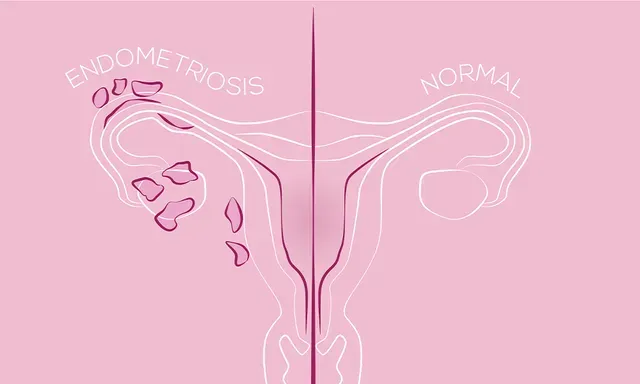Endometriosis Specialist in Austin, TX

Endometriosis Doctor in Austin, TX
Endometriosis Q & A
What is endometriosis?
Endometriosis is a chronic disease that causes the tissue that lines your uterus (endometrium) to grow outside of your uterus. This lining is what you shed each month during your period.
When the tissue grows outside of your uterus, it continues to break down with your menstrual cycle. However, there’s nowhere for the tissue to go, and it’s trapped within your body.
Endometrial tissue can grow on nearby pelvic structures, including your:
- Ovaries
- Bladder
- Bowels (intestines)
- Fallopian tubes
- Top of the vagina
- Peritoneal cavity (between the rectum and posterior wall of the uterus)
In rare cases, endometrial tissue can spread to your diaphragm, lungs, kidney, and appendix. Surprisingly, this tissue can also spread down into your calf muscles.
What are the symptoms of endometriosis?
Endometriosis can cause a variety of symptoms that range in severity. The lesions of endometriosis depend on the hormone estrogen for growth. While they’re benign, they can be progressive.
Women with endometriosis may experience:
- Pelvic pain
- Severe cramps
- Bladder dysfunction
- Heavy, painful periods
- Pain with sex (dyspareunia)
Endometriosis is also a leading cause of infertility and has links to other health concerns, including cancer, certain autoimmune diseases, fibroids, adenomyosis, and interstitial cystitis.
Unfortunately, endometriosis is often misdiagnosed as other conditions, including appendicitis and irritable bowel syndrome (IBS).
If you have any of these symptoms, you should schedule a diagnostic evaluation at Women’s Health Domain. The providers use advanced laparoscopic technologies, ultrasounds, and magnetic resonance imaging (MRI) to confirm your diagnosis and determine the stage of your endometriosis.
How is endometriosis treated?
While there is no cure for endometriosis, the physicians at Women’s Health Domain offer treatments that help you manage the condition and your symptoms.
Nonsurgical methods for treating endometriosis include:
- Pain-relieving medications
- Birth control pills
- Hormonal intrauterine device (IUD)
- Anti-inflammatory diet
- Acupuncture
If these treatments aren’t effective at relieving your symptoms, you may need surgery.
The providers specialize in several surgical techniques to treat endometriosis, including:
Laparoscopic deep excision surgery
Laparoscopic deep excision surgery is the gold standard for removing all of the endometriosis from the body, addressing lesions on the ovaries to the intestines.
Myomectomy
Myomectomy surgery is effective for treating fibroids that develop from endometriosis.
Hysterectomy
A hysterectomy is a surgical procedure to remove the uterus. This type of surgery is only necessary when you have adenomyosis, a condition where endometrial tissue grows into the muscular wall of the uterus.
To learn more about your treatment options for endometriosis, call Women’s Health Domain to schedule a consultation, or book an appointment online today.
Featured Services
Bilateral Salpingectomy
Bilateral Salpingectomy
MonaLisa Touch
